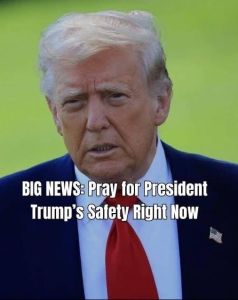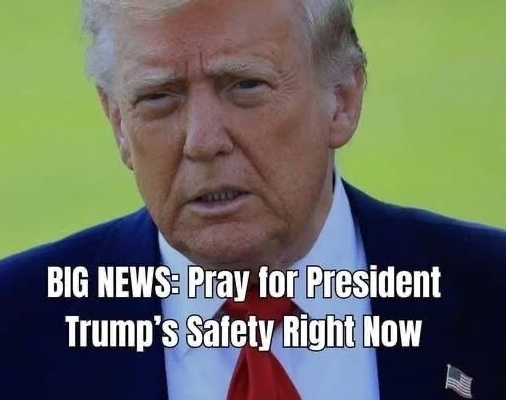Newt Gingrich Warns of ‘Very Dangerous’ Rhetoric as Political Tensions Escalate
Former House Speaker Newt Gingrich has sounded an urgent alarm about what he describes as the “very dangerous” state of American political discourse. In a recent interview, Gingrich said that the growing hostility, anger, and extreme rhetoric on both sides of the aisle are not just political theater—they are warning signs of something deeper and potentially destructive. He warned that the atmosphere of rage, fear, and mutual distrust could lead to real harm if it continues unchecked.
Gingrich, who served as Speaker from 1995 to 1999 and has remained a leading conservative voice, said he’s increasingly disturbed by how violent and contemptuous American political rhetoric has become. “We are entering a period where words can easily turn into actions,” he explained. “Once you start dehumanizing people who disagree with you, once you label entire groups as enemies rather than opponents, you set the stage for something serious to happen.”
He argued that recent events—from heated campaign rhetoric to threats against public officials—show that the United States is flirting with a breakdown of the very norms that sustain its democracy. Gingrich emphasized that the danger isn’t only in violent actions themselves, but in the cultural acceptance of hatred and contempt as political tools. “It’s a step-by-step process,” he said. “People get used to hearing violent talk. Then they stop reacting to it. That’s when democracy becomes fragile.”
According to Gingrich, the roots of this escalation lie in several converging forces: social media echo chambers, sensationalized news coverage, and a lack of respect for institutions. He argued that algorithms on major platforms reward outrage because it keeps people engaged and angry, and that politicians have adapted by using inflammatory language to energize their bases. “The more outrageous someone is, the more attention they get,” he said. “The reward structure in modern politics is completely upside down.”
Gingrich referenced data from the America’s New Majority Project, a research organization he’s affiliated with, showing that roughly 80 percent of Americans now believe the political system is corrupt or broken. That widespread distrust, he said, creates fertile ground for radicalization. “When people believe the system no longer represents them, they become susceptible to the idea that the ends justify the means,” he warned.
Throughout the conversation, Gingrich returned to one central theme: the rule of law must be upheld above all else. “You have to enforce the law—period,” he insisted. “Once we start deciding that certain people are above it or that violence is an acceptable substitute for persuasion, the entire system begins to crumble.” He argued that the justice system, elections, and even the peaceful transfer of power are under strain because leaders are prioritizing partisan victory over democratic stability.
He also criticized what he sees as the growing trend of politicizing every institution—from the courts to universities to the media. Gingrich believes that this politicization erodes trust, leaving Americans unsure where to turn for objective truth. “If every referee is accused of cheating, you can’t have a fair game,” he said. “That’s what’s happening in our politics right now.”
The former Speaker drew historical parallels to moments of social tension in the nation’s past, noting that the U.S. has weathered divisions before, but not without cost. He invoked Abraham Lincoln’s warning that America’s destruction could only come from within. “Lincoln understood that democracy can die from apathy or from hatred,” Gingrich said. “We’re not immune to that just because we’re Americans.”
While Gingrich placed much of the blame for current tensions on what he described as radical elements on the left, he also acknowledged that the problem spans the political spectrum. “There’s no monopoly on anger,” he said. “Both sides have people who are willing to demonize their opponents, who believe compromise is weakness, and who would rather destroy institutions than lose an argument. That mindset is the real threat.”
He called on political leaders to “restore a sense of proportion” and to remember that disagreement is not the same as disloyalty. “Our founders built a system designed for debate and argument,” Gingrich explained. “They expected people to disagree—but they also expected them to recognize that we’re all part of the same nation.”
Gingrich also cautioned that younger generations may be growing up without a clear understanding of those democratic principles. “If all they see are politicians shouting and people online attacking each other, they don’t learn what citizenship really means,” he said. “Civility isn’t weakness—it’s strength. It’s what allows freedom to survive conflict.”
He pointed to the rise in threats against public officials, political violence, and vandalism of government buildings as evidence that the line between words and action is blurring. In his view, these incidents are symptoms of a larger moral drift—one that leaders must confront directly. “You cannot keep pouring gasoline on a fire and then be surprised when it spreads,” he warned.
Despite his stark assessment, Gingrich also offered a measure of optimism. He believes that most Americans, regardless of party, still value fairness, honesty, and peace. “The vast majority of people want calm,” he said. “They want leaders who act like adults, not provocateurs. If we can empower those voices and quiet the extremes, there’s still time to pull back.”
He suggested several steps toward de-escalation: tone down campaign rhetoric, hold leaders accountable for reckless statements, and re-emphasize civic education. “We need to teach people how democracy works again,” he said. “That means understanding compromise, respecting process, and remembering that our opponents are still our fellow citizens.”
Analysts observing Gingrich’s comments note that his warning carries weight because he himself was once known as a sharp partisan strategist during the 1990s. His “Contract with America” and confrontational style helped reshape political debate, but he has since reflected on how those changes set the tone for modern partisanship. His current message, they argue, reflects a growing recognition among older political figures that polarization has reached a breaking point.
Critics of Gingrich, however, have accused him of hypocrisy, arguing that he helped create the climate he now condemns. They point to his own history of fiery rhetoric as Speaker and to the political tribalism that flourished during his rise. Gingrich counters that while partisanship has always existed, today’s environment is qualitatively different because of digital media, instant outrage, and cultural fragmentation. “This is bigger than left versus right,” he said. “This is about whether the United States can still have a functioning democracy in an age of constant anger.”
He concluded with a stark appeal to responsibility. “We don’t need everyone to agree,” Gingrich said. “We just need everyone to remember that disagreement doesn’t make someone the enemy. Once we lose that understanding, we lose the republic.”
Whether one agrees with Gingrich’s political perspective or not, his message serves as a timely reminder that rhetoric matters. Words shape beliefs, and beliefs shape actions. As the country moves into another contentious election cycle, the call to lower the temperature may be one of the few issues that truly unites Americans.
For Gingrich, the warning is simple but urgent: political debate is healthy—hatred is not. If leaders and citizens alike cannot draw that line, he says, the consequences could be more serious than anyone expects.


